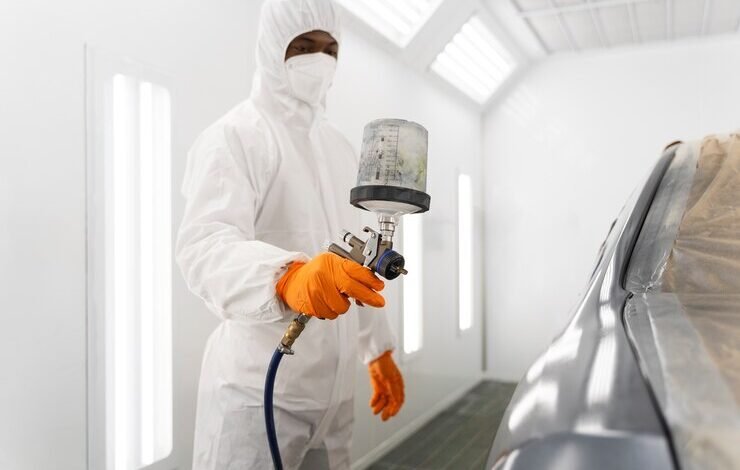
High-velocity oxygen fuel (HVOF) coating is a thermal spray process that has become indispensable in various high-performance industrial applications. The need for materials that can withstand extreme conditions, such as high temperatures, corrosion, erosion, and wear, has led to the adoption of HVOF coating technology across multiple industries. This coating process enhances the performance and lifespan of components, making it a crucial solution for industries where reliability and durability are paramount.
1. Superior Wear and Erosion Resistance
One of the primary reasons HVOF coatings are essential is their exceptional wear and erosion resistance. In industries like oil and gas, aerospace, and manufacturing, components are often subjected to harsh environments where they face constant friction, impact, and abrasive forces. HVOF coatings, typically made of materials like tungsten carbide, chromium carbide, or ceramic-metal composites, provide a hard, dense surface that significantly reduces wear and erosion. This extended durability reduces the frequency of maintenance and replacement, leading to lower operational costs and increased efficiency.
2. Enhanced Corrosion Protection
Corrosion is a major challenge in industries such as chemical processing, marine, and energy production, where exposure to corrosive substances can lead to the rapid degradation of critical components. HVOF coatings offer excellent corrosion protection by creating a barrier that prevents corrosive elements from reaching the underlying substrate. Coatings made from materials like nickel, cobalt, or stainless steel alloys are particularly effective in resisting corrosion, even in highly aggressive environments. This protection is crucial for extending the service life of components and ensuring the continuous operation of industrial systems.
3. High Temperature Stability
In high-performance industrial applications, components often operate under extreme temperatures. HVOF coatings are known for their excellent thermal stability, maintaining their properties and integrity even at elevated temperatures. This makes them ideal for use in industries like aerospace and power generation, where components such as turbine blades, combustion chambers, and exhaust systems are exposed to intense heat. The ability of HVOF coatings to withstand high temperatures without degrading ensures that these critical components remain functional and reliable.
4. Improved Surface Finish and Precision
HVOF coating technology allows for precise control over the thickness and surface finish of the applied coating. This precision is vital in applications where tight tolerances and smooth surfaces are required. The fine, dense structure of HVOF coatings minimizes surface roughness, which is particularly important in components like hydraulic cylinders, seals, and bearing surfaces. A smoother surface reduces friction and wear, leading to improved performance and efficiency in mechanical systems.
5. Versatility in Material Selection
Another advantage of HVOF coating is the wide range of materials that can be used. Depending on the specific requirements of an application, different materials can be chosen to achieve the desired properties, such as hardness, corrosion resistance, or thermal stability. This versatility makes HVOF coatings suitable for a broad spectrum of industrial applications, from protecting components in harsh chemical environments to enhancing the wear resistance of machine parts.
6. Cost-Effective Maintenance Solution
Implementing HVOF coatings can significantly reduce the overall maintenance costs of industrial equipment. By extending the life of components and reducing the need for frequent repairs or replacements, HVOF coatings contribute to lower downtime and maintenance expenses. This cost-effectiveness is particularly beneficial in industries where equipment failure can lead to costly production stoppages or safety hazards.
7. Environmentally Friendly Process
In addition to its performance benefits, HVOF coating is also considered an environmentally friendly process. Unlike some traditional coating methods, HVOF does not produce hazardous waste or involve the use of toxic chemicals. The process is efficient, with minimal material waste, and it can be applied to components without the need for extensive pre-treatment. This makes HVOF an attractive option for companies seeking to reduce their environmental impact while maintaining high-performance standards.
Conclusion
HVOF coating technology is essential for high-performance industrial applications due to its superior wear and erosion resistance, corrosion protection, high-temperature stability, and versatility. By enhancing the durability and reliability of critical components, HVOF coatings play a key role in improving the efficiency and longevity of industrial systems. As industries continue to demand higher performance and sustainability, the adoption of HVOF coatings is likely to grow, further cementing their importance in the industrial sector.



